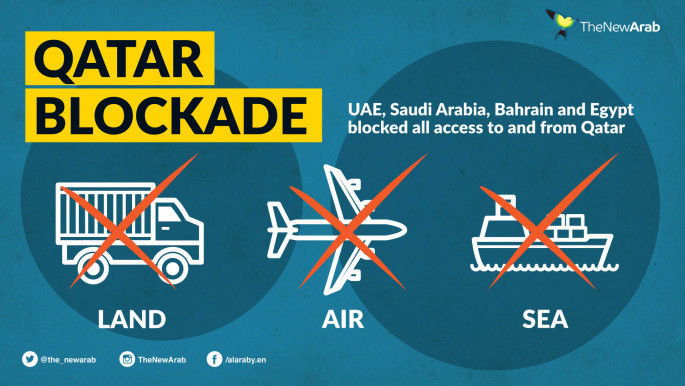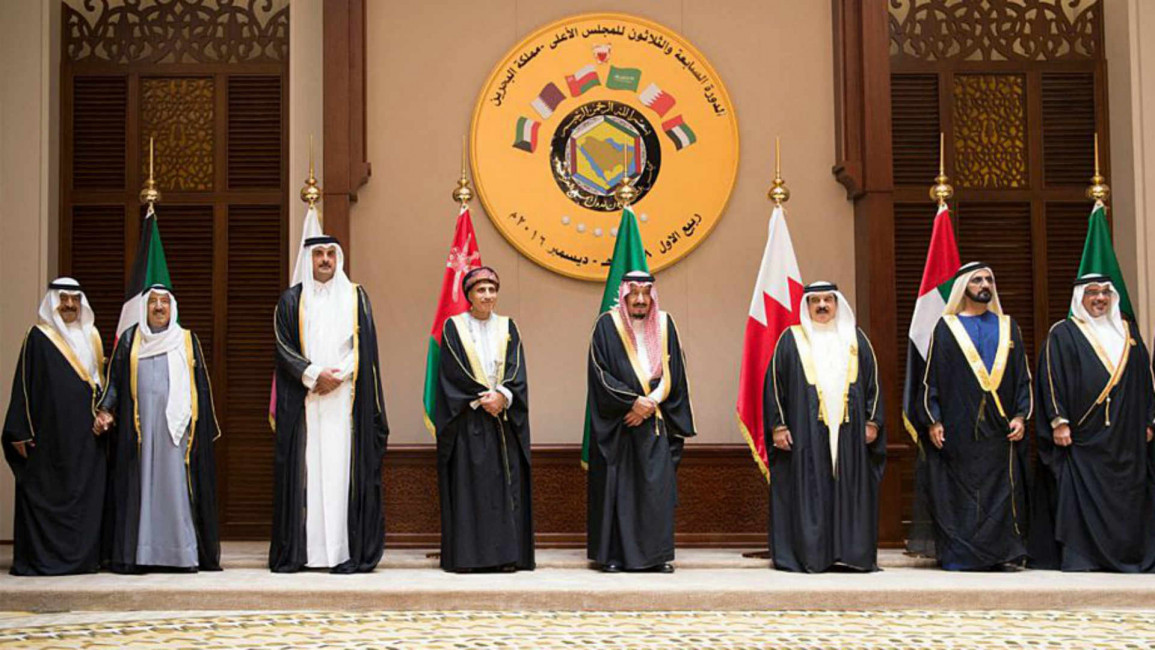GCC summit opens but hopes dashed by UAE-Saudi snub
Sources in Kuwait also told The New Arab that the countries blockading Qatar have decided to downscale the level of their representation at the summit.
Gulf foreign ministers gathered Monday in Kuwait on the eve of the annual summit that will bring together Qatar and its feuding neighbours, despite little hope for an end to the bitter rift.
Qatari Emir Sheikh Tamim bin Hamad Al-Thani will be at the summit, but less than 24 hours before it was due to begin it was still unclear whether the rulers of Saudi Arabia, the United Arab Emirates and Bahrain would also attend.
On Tuesday morning, hours before the summit was scheduled to begin, the United Arab Emirates announced it has formed a new economic and partnership group with Saudi Arabia, separate from the GCC— a move that could undermine the council amid a diplomatic crisis with member state Qatar.
The Emirati Foreign Ministry announcement said the new “joint cooperation committee” was approved by the UAE’s ruler and president, Sheikh Khalifa bin Zayed Al Nayhan.
Saudi Arabia did not immediately report on the new partnership.
|
It wasn’t immediately clear how the development could affect the six-member GCC meeting, which is expected to focus on the Qatar issue. Half of the GCC members are blockading Doha in a dispute that’s cleaved the Arabian Peninsula.
The Emirati ministry said the new “committee is assigned to cooperate and coordinate between the UAE and Saudi Arabia in all military, political, economic, trade and cultural fields, as well as others, in the interest of the two countries.”
Those three Gulf states, together with Egypt, cut all ties with Qatar on June 5, accusing the gas-rich emirate of supporting Islamist extremists and of being too close to Shia Iran, Riyadh's arch-rival. Qatar denies the allegations.
Mediation efforts led by Kuwait have failed to resolve what is the worst crisis to hit the Gulf Cooperation Council in its 36-year history, casting serious doubts over the future of the six-state alliance.
As Kuwait readied to host the two-day GCC summit, analysts said its efforts to bring about a peaceful end to the crisis may be at a complete standstill.
"The crisis is too deep and very complicated... I don't think it will be resolved during the summit," said independent Kuwaiti political analyst Saleh al-Saeedi.
"But I think Kuwait hopes to at least freeze the dispute, stop its deterioration and move on to the next step."
Founded in 1981, the GCC is a political and economic union grouping Qatar with Bahrain, Saudi Arabia and the United Arab Emirates as well as Oman and Kuwait.
Qatar has accused the Saudi-led Arab bloc of aiming to incite a change of regime in Doha.
Besides the Qatari emir, it is still unclear who will attend.
Oman has said it will be sending a senior official to represent its ruler Sultan Qaboos, who traditionally stays away from summits.
The other GCC states have yet to announce who they would be sending, although some Kuwaiti media have reported Saudi King Salman may attend.
 |
After cutting off all ties with Qatar, Saudi Arabia and its allies imposed a land, sea and air blockade of the emirate and issued a list of 13 demands to have it lifted |  |
Once-powerful bloc threatened
On Monday, the foreign ministers of Saudi Arabia and Qatar attended round-table talks ahead of the gathering, in their first such encounter since the diplomatic crisis erupted in June.
|
Oman Minister of State for Foreign Affairs Yussef bin Alawi sat between them at the meeting which the foreign ministers of the UAE, Bahrain and Kuwait also attended.
After cutting off all ties with Qatar, Saudi Arabia and its allies imposed a land, sea and air blockade of the emirate and issued a list of 13 demands to have it lifted.
Bahrain in October openly called for Qatar's membership of the GCC to be suspended until it accepted the demands.
Experts warn that the crisis could lead to the demise of the once-powerful GCC.
"The justifications for the existence of the GCC bloc amidst the continued crisis are no longer present like before," said Sami al-Faraj, head of the Kuwait Center for Strategic Studies.
"As long as our enemy has changed from Iran to Qatar, the GCC will not continue."
The failure of the GCC members to solidify long-delayed plans for economic unity may also threaten its future.
The Gulf states have approved a customs union, a common market, a single currency and a single central bank but most of these have yet to be properly implemented.
Speaking at Monday's meeting, Kuwait's Foreign Minister Sheikh Sabah Khaled Al-Sabah stressed the determination of member states to preserve the GCC.
"The GCC is a continuous project in which the will of member states meets to build a unified Gulf body," he said.
GCC chief Abdullatif al-Zayyani told the meeting that the region's difficulties coupled with security and political challenges required members to consolidate solidarity and unity.



